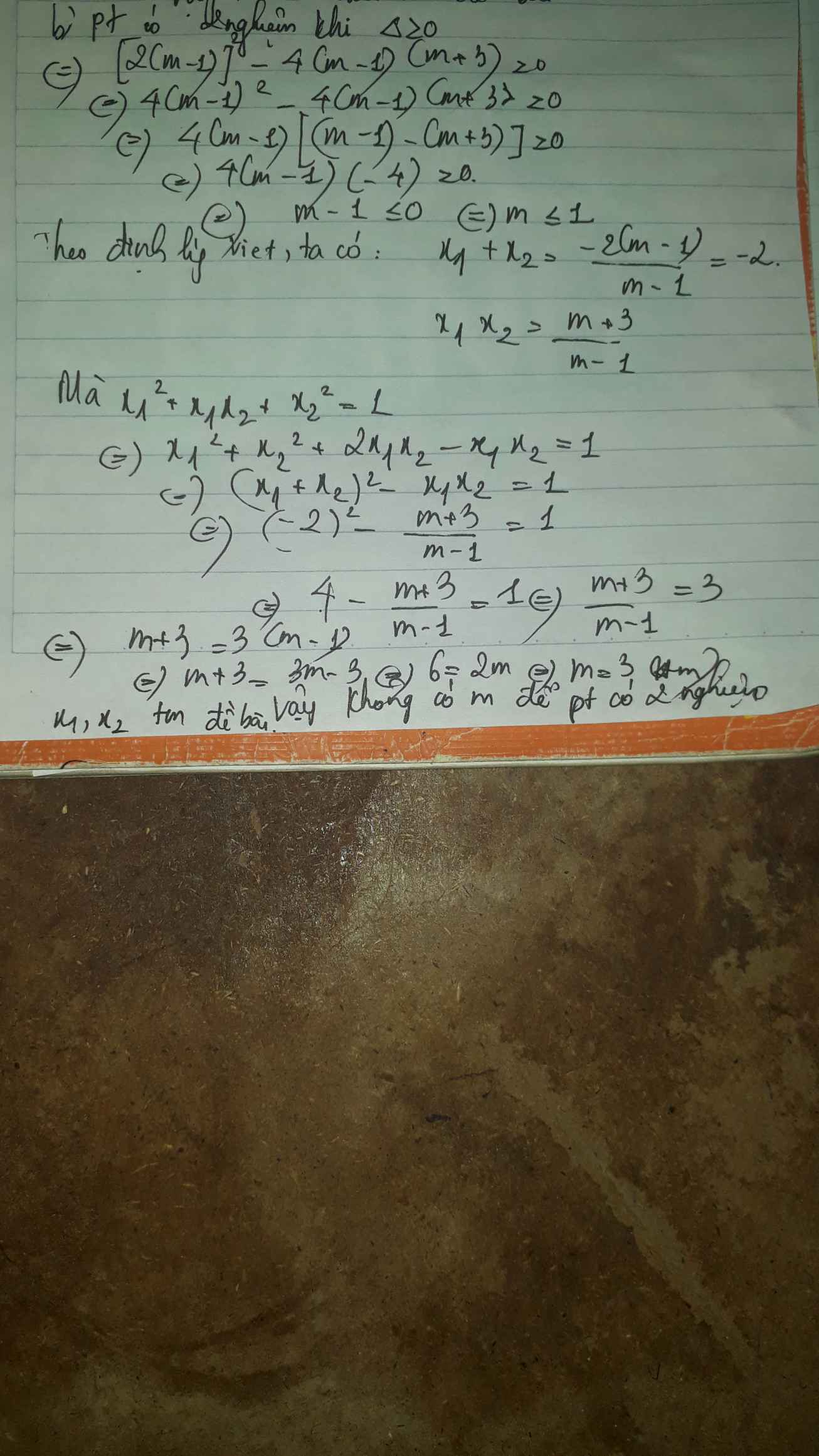Hãy nhập câu hỏi của bạn vào đây, nếu là tài khoản VIP, bạn sẽ được ưu tiên trả lời.

PT có 2 nghiệm phân biệt \(\Leftrightarrow\Delta=\left(2m-3\right)^2-4\left(m-3\right)=9>0\)
Vậy PT có 2 nghiệm phân biệt với mọi m
Ta có \(\left[{}\begin{matrix}x_1=\dfrac{2m-3+3}{2}=m\\x_2=\dfrac{2m-3-3}{2}=m-3\end{matrix}\right.\)
Ta thấy \(m>m-3\) nên \(1< m-3< m< 6\Leftrightarrow4< m< 6\)
Vậy \(4< m< 6\) thỏa yêu cầu đề

có 2 nghiệm phân biệt chi và chỉ khi \(\Delta^,=\left(m-2\right)^2-m^2-2m+3>0\)
\(\Leftrightarrow m^2-4m+4-m^2-2m+3>0\)
\(\Leftrightarrow-6m+7>0\Leftrightarrow m< \frac{7}{6}\)

a: Khi m = -4 thì:
\(x^2-5x+\left(-4\right)-2=0\)
\(\Leftrightarrow x^2-5x-6=0\)
\(\Delta=\left(-5\right)^2-5\cdot1\cdot\left(-6\right)=49\Rightarrow\sqrt{\Delta}=\sqrt{49}=7>0\)
Pt có 2 nghiệm phân biệt:
\(x_1=\dfrac{5+7}{2}=6;x_2=\dfrac{5-7}{2}=-1\)

b) phương trình có 2 nghiệm \(\Leftrightarrow\Delta'\ge0\)
\(\Leftrightarrow\left(m-1\right)^2-\left(m-1\right)\left(m+3\right)\ge0\)
\(\Leftrightarrow m^2-2m+1-m^2-3m+m+3\ge0\)
\(\Leftrightarrow-4m+4\ge0\)
\(\Leftrightarrow m\le1\)
Ta có: \(x_1^2+x_1x_2+x_2^2=1\)
\(\Leftrightarrow\left(x_1+x_2\right)^2-2x_1x_2=1\)
Theo viet: \(\left\{{}\begin{matrix}x_1+x_2=-\dfrac{b}{a}=2\left(m-1\right)\\x_1x_2=\dfrac{c}{a}=m+3\end{matrix}\right.\)
\(\Leftrightarrow\left[-2\left(m-1\right)^2\right]-2\left(m+3\right)=1\)
\(\Leftrightarrow4m^2-8m+4-2m-6-1=0\)
\(\Leftrightarrow4m^2-10m-3=0\)
\(\Leftrightarrow\left[{}\begin{matrix}m_1=\dfrac{5+\sqrt{37}}{4}\left(ktm\right)\\m_2=\dfrac{5-\sqrt{37}}{4}\left(tm\right)\end{matrix}\right.\Rightarrow m=\dfrac{5-\sqrt{37}}{4}\)
